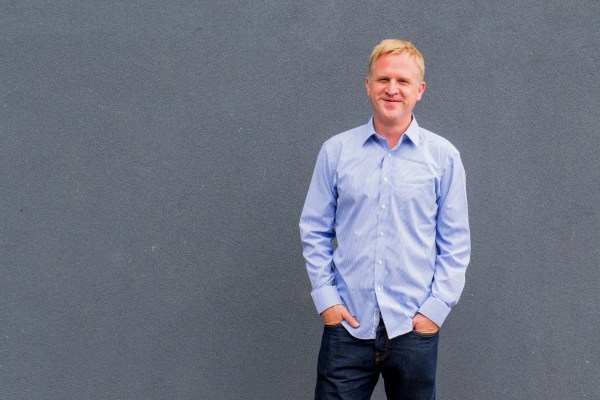You don’t hear of many $2 loans in the United States, where $2 won’t buy you more than a chocolate bar. But in cities like Lagos, Nigeria, and Nairobi, Kenya, $2 has the buying power of roughly $40, making such “micro” loans useful when you’re running a small business. And borrowing $2 from a startup called Branch is a way onto a platform that promises much bigger loans, based on your credit worthiness.
What is Branch and why is it bothering with such small amounts of money? For answers to those questions, we talked this week with its founder and CEO Matt Flannery, who previously cofounded and co-led Kiva, a now 14-year-old micro-lending platform that enables families to make small loans to entrepreneurs in developing countries.
Flannery realized while running Kiva that a nonprofit — which Kiva is — can only get so far when it comes to fundraising. Meanwhile, fascinated by the spread of smart phones and digital payment systems in Africa, Flannery knew that if he could raise serious capital, he could make even more loans to small business owners without needing to meet and interview them first.
In service to that idea, what Branch built is an app that analyzes all kinds of information on users’ phones that determines how to score their credit. For example, in Nigeria, every time you use an ATM, the bank sends you an SMS message with your bank balance. That’s useful information to Branch. In Kenya, every time you pay your energy bill, the receipt comes via SMS. Knowing if you pay it and how big a bill you’re paying is valuable information, too.
Users apparently don’t see the app as invading their privacy — or it’s worth the trade-off to them if they do. Since its 2015 founding, Branch has been downloaded onto more than one million mobile phones in Sub-Saharan Africa, says Flannery.
Based on that momentum, Branch has attracted the kind of financial muscle Flannery was seeking when he left Kiva to start the company. In fact, Branch is announcing today that it has lined up $70 million in Series B funding to expand its financial offerings to additional countries, including India.
Trinity Ventures led the $20 million equity portion of the round, along with participation from International Finance Corporation, Andreessen Horowitz and CreditEase Fintech Investment Fund. Branch also secured a $50 million debt facility from Victory Park Capital, an investment firm with a focus on alternative credit whose portfolio includes LendUp.
Altogether, Branch has now raised $80 million. The kind of funding suggests that lending incremental amounts isn’t just helpful to small business owners in developing countries; there’s a lucrative opportunity in it.
“The banking infrastructure in the U.S. is so robust and complete,” says Schwark Satyavolu, the general partner at Trinity Ventures who led the round for his firm. Meanwhile, Branch, he says, “seems like an application of Silicon Valley tech to create financial services. But it’s substantially more interesting, because Branch is doing it in emerging markets where you don’t have a robust stack or credit bureaus or information that’s nearly as rich or as deep as in the Western world.”
It’s worth noting that Branch is not a bank, despite that it calls itself a “branchless bank.” Its straightforward terms of use are just one giveaway. Branch charges 15 percent interest on a loan as low as $2 at the end of one month. It also charges a 15 percent APR on its largest loans, which are $1,000 and can be paid over a 12-month period. Branch basically loses money on the $2 loan in order to drum up repeat business — and the strategy is working, according to Flannery. New customers borrow from Branch 20 times on average in the first year after they’ve downloaded the app.
If that sounds like a risky proposition for new borrowers, the good news, in our view, is that Branch never charges its users overdraft fees. “I’ve worked in microfinance long enough to know that late fees create a cycle of debt,” Flannery says.
What investors like even more is that Branch — which has 100 employees in San Francisco, Lagos, and Nairobi — was profitable before taking on this new funding.
The company is also growing 20 percent month over month, and it plans to roll out savings accounts next.
“We see savings as a critical next step,” says Flannery. “People typically don’t have them, or the yield is super low to non-existent.”
It will be a “big regulatory issue for us,” he says, explaining such accounts could be as much as a year out, based on Branch’s dealings with the banks it needs as partners.
It’s worth it, though, he adds. There’s a “big opportunity in these places.”
